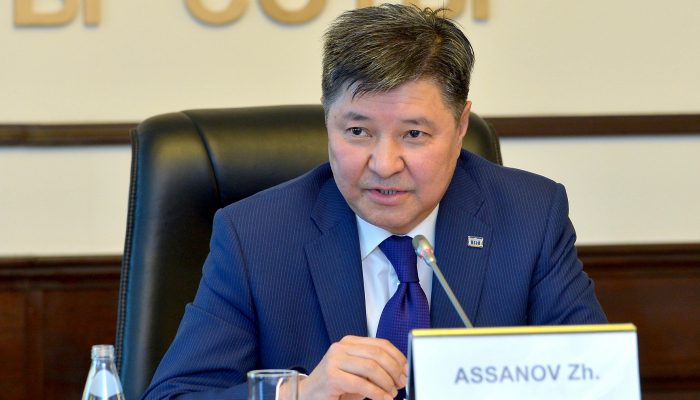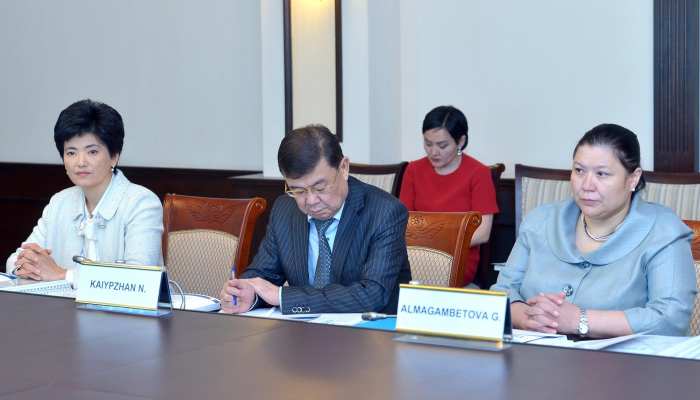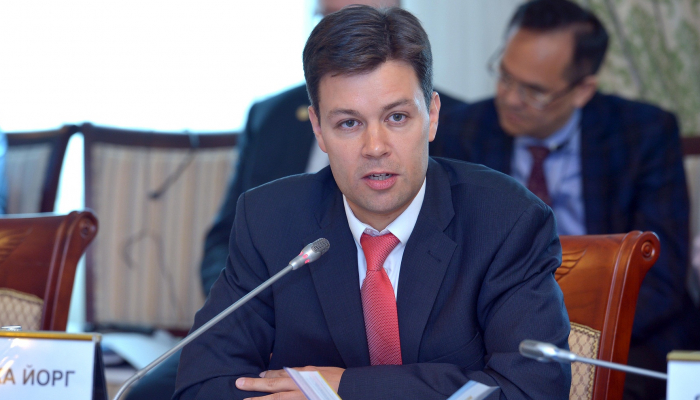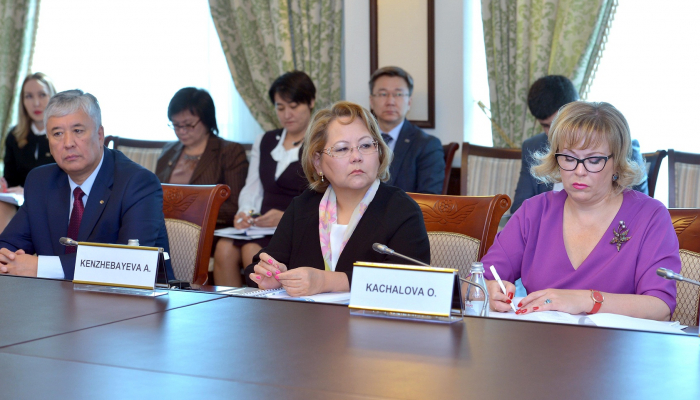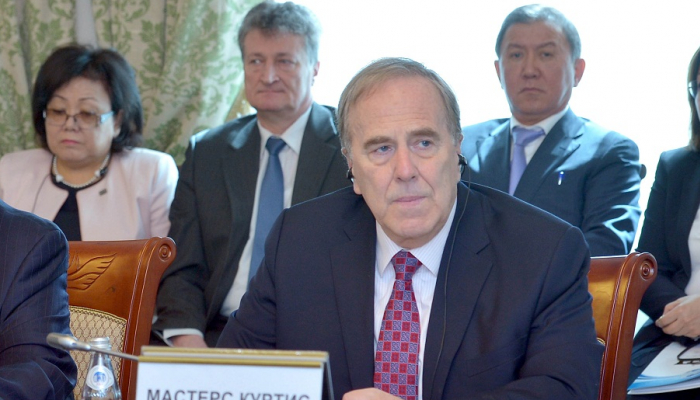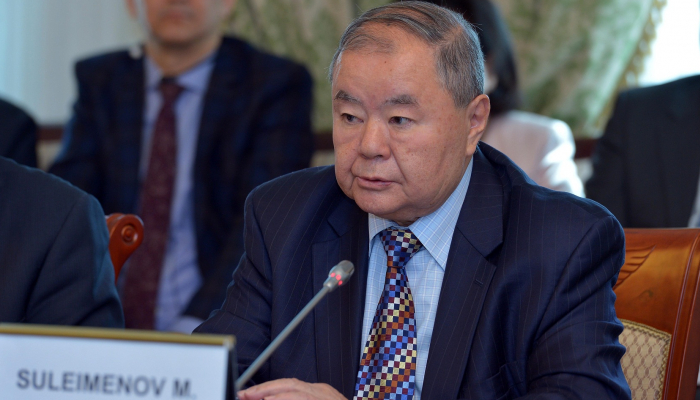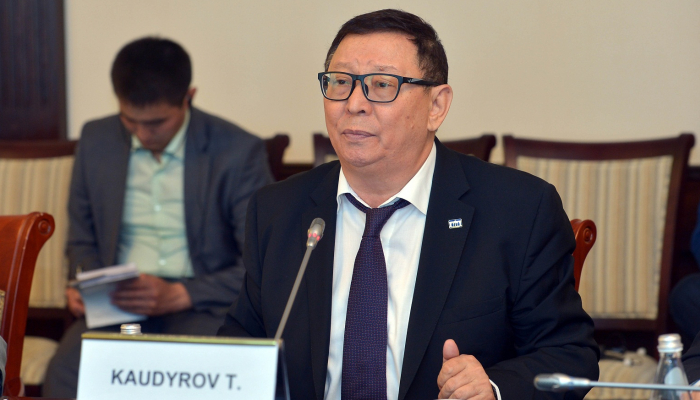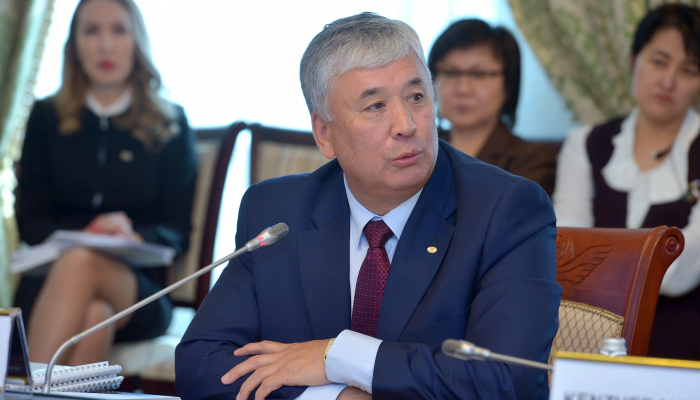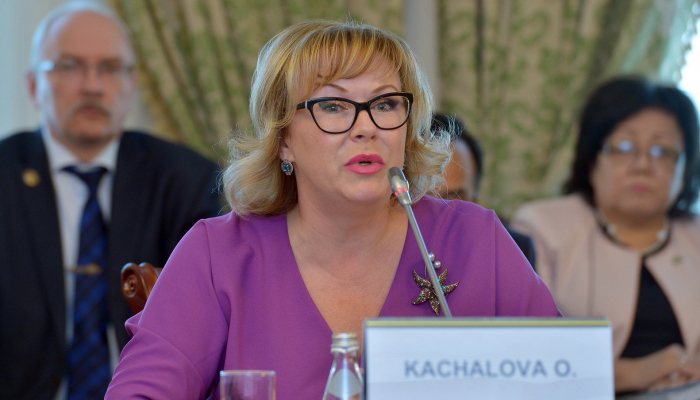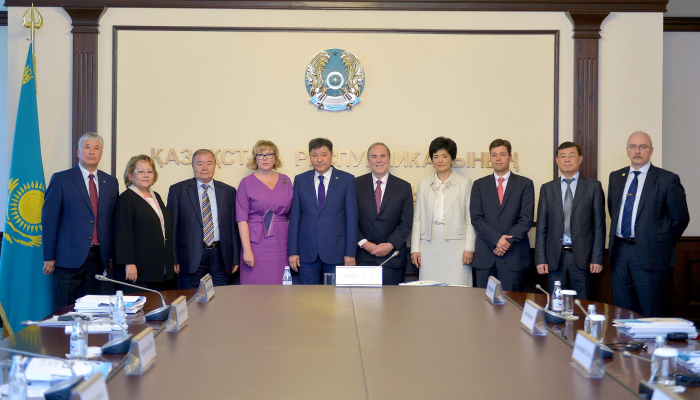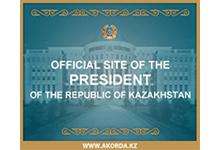Fri, 06/01/2018 - 15:11
The Chairman of the Supreme Judicial Body Zhakip Asanov held a regular meeting of the International Council at the Supreme Court.
В мероприятии приняли участие судьи Верховного Суда, руководство Департамента, а также The judges of the Supreme Court, the leadership of the Department, as well as the chairman and judge of the EuroEC court, Zholymbet Baishev and Venera Seitimova took part in the event.
The participants of the meeting discussed the international experience in the consideration of public and law disputes (the administrative justice system), the legal possibilities for additional simplification of the civil process and the implementation of the corresponding changes in the Civil Procedure Code.
Opening the meeting, Zh.Asanov recalled the important tasks assigned to the International Council by the Plan of National for improving the judicial system activity. First and foremost, this is the speedy implementation of the best international standards as an important factor for improving the efficiency of courts and public confidence in the judiciary. Having informed the participants of the meeting about the work carried out by the Supreme Court on seven priority programs for the development of the judicial system, he invited Council members to actively engage in project activities.
Speaking on the agenda of the meeting, Zh. Asanov noted that the new draft of the Administrative Procedural Code (APC) laid the principle of the court active role with the possibility of initiating the collection of evidence in favor of the person who applied. This is done in cases where the parties to a dispute are initially unequal - an individual or an organization is opposed by a public law entity (state body), vested with power. He noted that the new APC project combines two bills - on administrative procedures and the administrative procedural code. In the near future it is planned to introduce APC into the Government and Parliament.
A member of the Council, a judge of the administrative court of Berlin, the head of the GIZ office in the Republic of Kazakhstan Jörg Poodelka, spoke about the experience of the consideration of public disputes and the conclusion of the APC project. "There is a general recognition and understanding that the regulation of administrative procedures and process constitutes a significant share of legal certainty, and therefore, the economic and investment climate in the country. In this regard, Kazakhstan's current desire to adopt appropriate regulation is very much welcomed, as was done by the majority of the successor states of the Soviet Union over the past 20 years, "he said.
Talesh Kaudyrov, member of the Council, Rector of the Academy of Justice, spoke about the legal opportunities for further simplification of the civil process, taking into account international experience. In his opinion, a significant recent increase in the burden on judges creates a risk of reducing the quality of the administration of justice. As a result, this can level out public confidence in the judiciary and in all state institutions as a whole. In this regard, a number of new mechanisms for simplifying the civil process are proposed. This will reduce the burden on judges, as well as reduce the costs of parties and the state for trial.
The speaker noted that the rules of the civil procedural legislation of England and Wales are the most attractive for international investors. T. Kaudyrov spoke about a number of original and interesting institutions of these rules. This is the regulation of the definition and distribution of court expenses. To do this, after the decision is made, questions may arise, such as indexing the amounts of court expenses, as well as reviewing the distribution of expenses on the basis of avoidance of voluntary fulfillment of the court decision. Speaking about the institutional development of mediation, he noted that in English legal proceedings the refusal of mediation can be considered as an action aimed at complicating the judicial review. This, in turn, may be reflected in the distribution of expenses not in favor of the party unreasonably refusing mediation and other alternative methods of resolving disputes.
T. Kaudyrov informed that the team of the "Adyl Process" program proposed to unify the definition of initiating a civil case (Article 150 of the Civil Procedure Code) with the decision to prepare the case for trial (Art. 163 CPC) to simplify the proceedings. It was also noted about the development of a number of mechanisms for the legislative resolution of the problem of reducing the burden of judges. To this end, a draft law "On Amendments and Additions to Certain Legislative Acts in Connection with the Update of Extrajudicial and Pre-judicial Settlement of Disputes" has been drafted. It proposes the optimization of the enforcement process, the further development of mediation, the change in the grounds for the issuance of judicial orders, leaving here only the grounds for failing to fulfill the decisions of the pre-trial and alternative instances of dispute settlement.
On all matters, there was a constructive exchange of views with reference to international experience. The proposals developed by the participants will be used as recommendations for further improvement of judicial activity. All materials on the meeting will be posted on the website of the Supreme Court.
It will be recalled that the Council includes 15 authoritative Kazakhstan and foreign experts. It is headed by the Chairman of the Supreme Court. The staff of the Council can be found here.
The International Council is the practical implementation of the 25th step of the Plan of Nation.

